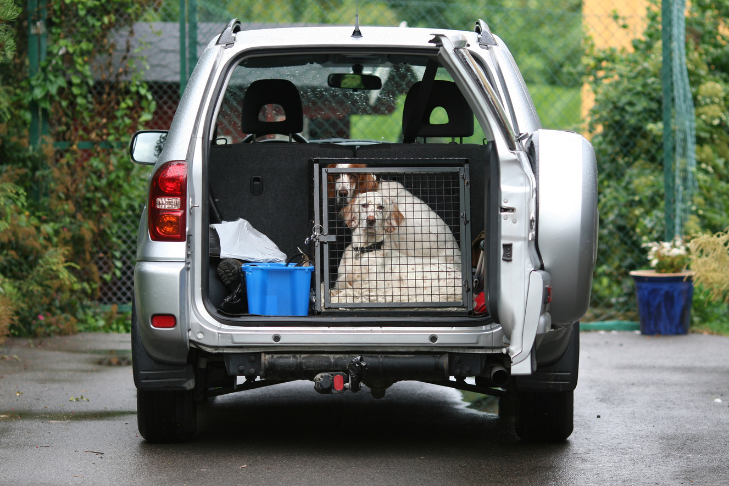Emergency Evacuation Checklist for Pet Parents

When disaster strikes, time is of the essence. Whether it’s a wildfire, hurricane, flood, or unexpected evacuation order, having a solid emergency plan can make all the difference for you and your pets.
The most important thing to do in an emergency is to get you and your pets to safety. But preparing ahead can help things go more smoothly. Here’s a comprehensive emergency evacuation checklist to ensure you're fully prepared:
1. Pet Go-Bag Essentials
Prepare a dedicated bag for each pet with the following items:
-
Food and Water (3–7 day supply): Include collapsible bowls and ensure food is stored in waterproof containers.
-
Medications and Supplements: Pack at least a week’s supply, including any CBD products your pet relies on to stay calm and balanced.
-
Leash, Collar, and Harness: Pets need to be safely restrained and have ID during travel, especially in stressful situations.
-
Pet First Aid Kit: Include gauze, antiseptic wipes, tweezers, and other pet-specific first aid items.
-
Comfort Items: Bring a favorite toy, blanket, or chew to help ease stress.
2. Identification and Documentation
-
Microchip Information: Ensure your pet’s microchip is registered and contact details are up to date.
-
Current Photos of Your Pet: In case you get separated, having a recent photo can help reunite you.
-
Medical Records and Vaccination Certificates: Keep copies (digital and physical) for any shelter or boarding facility requirements.
-
Proof of Ownership: Documents like adoption papers or vet records that prove you own your pet.
3. Safe Transportation
-
Sturdy Carrier or Crate: Your pet should be familiar with their crate ahead of time. Label the crate with your contact info in case you get separated.
-
Blankets or Towels: Useful for comfort or if your pet gets wet or dirty.
4. Evacuation Plan
-
Know Your Route: Plan multiple evacuation routes in case one is blocked or unsafe.
-
Pet-Friendly Shelters and Hotels: Identify places that accept pets ahead of time and keep a list handy.
-
Buddy System: Coordinate with neighbors or nearby friends who can evacuate your pet if you’re not home.
5. Emergency Contact List
-
Veterinarian Info
-
Emergency Animal Hospitals
-
Local Animal Shelters
Be Proactive, Not Reactive
Disasters can be chaotic and overwhelming, but with a little preparation, you can act swiftly and confidently. Pets are highly sensitive to stress and change, so your preparedness can help keep them calm. Consider keeping some calming CBD chews or oils on-hand or in your car to support your pet’s wellness during unsettling times.


